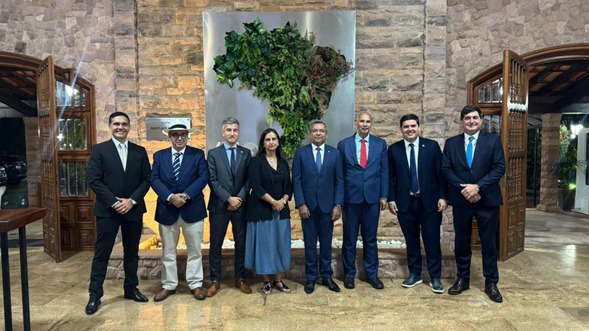The global market for organic produce has grown significantly in recent years, with US$46.1 billion being marketed in 2007.
San Jose, Costa Rica, November 17, 2009 (IICA). The first Assembly of the Inter-American Commission for Organic Agriculture (ICOA), which comprises the competent authorities of 15 countries of the Americas, is being held from November 16 to 20 at the Headquarters of the Inter-American Institute for Cooperation on Agriculture (IICA), in Costa Rica, to set guidelines and policies for its operation and to elect its first Board of Directors.
In June 2008, the ministers of agriculture of the hemisphere created the ICOA for the purpose of contributing to the further development of organic agriculture in their countries and facilitating trade of organic produce.
During the inaugural ceremony, the Deputy Minister of Agriculture of Costa Rica, Carlos Villalobos, stated that “organic agriculture creates opportunities for small- and medium-scale growers.”
The sector has grown significantly, with US$46 billion being marketed in 2007 and more than 2000 varieties of products and articles being offered.
Villalobos noted that “in the midst of the current global economic crisis, it is an alternative for developing our countries.”
The ICOA is the first regional body to deal directly with organic agriculture. IICA serves as the Technical Secretariat of the Commission by mandate from the Inter-American Board of Agriculture (IABA), the governing body of the Institute.
“If we want to advance the development of organic agriculture and facilitate trade in organic produce worldwide, we cannot put off the decision on matters such as local and national markets for organic produce, public certification, certification of non-food organic products and the safety of organic foods,” according to acting Director General of IICA, Dowlat Budhram.
Of the 32.2 million hectares certified as organic in the world in 2007, 24% (8.6 million hectares) were found in the countries of the region. In addition, of the 1.2 million organic growers in the world, 19.3% (some 235,000 growers) live and work in the countries of the Americas.
The ICOA is facing a number of challenges. It must coordinate and promote the development of the sector, strengthen its institutional framework, harmonize rules on the production and control of organic products and serve as a body from consultation, liaison and cooperation among the countries.
According to the Coordinator of IICA’s Hemispheric Organic Agriculture Program, Pedro Cussianovich, “Organic agriculture is an economically and commercially viable option for small-scale growers because the demand is there and the market is growing.”
For further information











